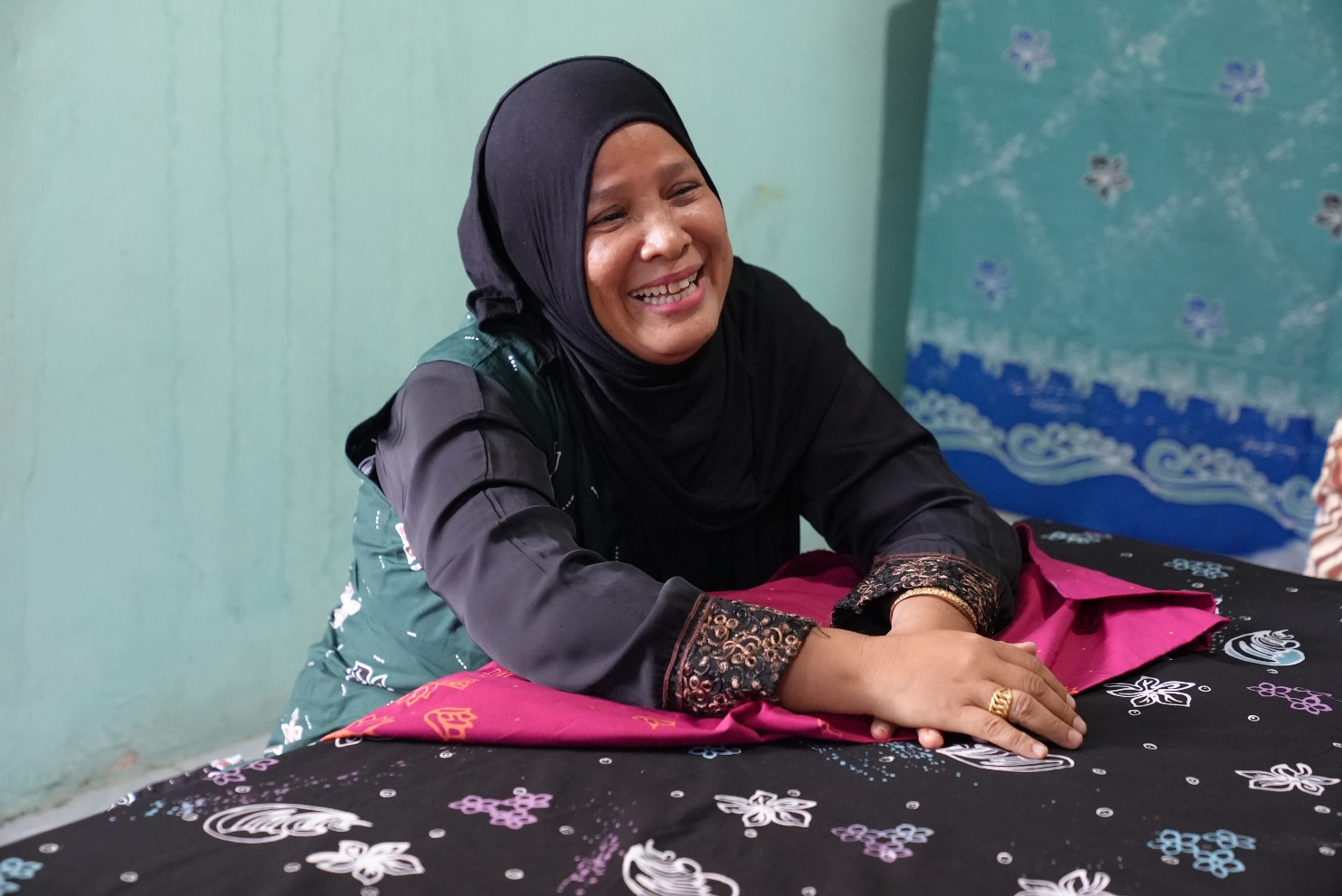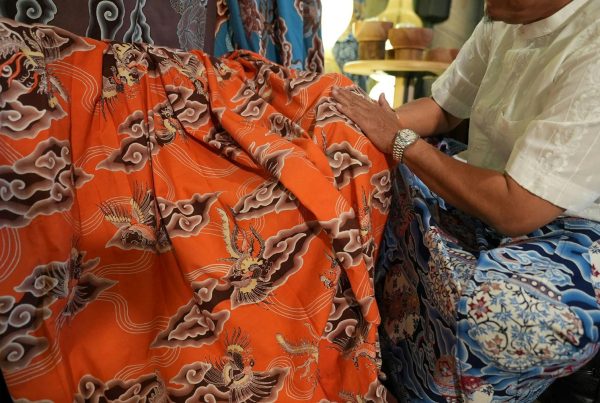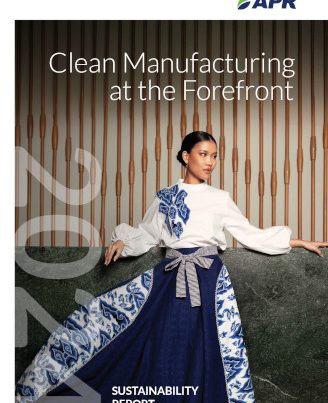Empowered by Asia Pacific Rayon’s programmes for community growth, female- and youth-owned start-ups in Riau are shining a light on the province’s emerging fashion excellence and craftmanship
Each year, Asia Pacific Rayon (APR) produces high-quality viscose rayon at our 300,000-tonne capacity mill in Riau, Indonesia, making the group a major contributor to the region’s socioeconomic growth.
Over the years, Riau has evolved from its small-town origins to a thriving area full of opportunities.
Recognising this development, and in alignment with the APR2030 goals for Inclusive Prosperity, the company set its sights on enhancing the living standards of the communities around the operational areas, and eventually transform Riau into a regional textile hub by 2030.
“We know that the textile industry is primarily centred on the island of Java, particularly in Bandung and Solo,” says Basrie Kamba, APR’s President Director. “Since APR operates in Pelalawan, Riau, we should also provide opportunities to the local community, especially the craftsmanship and fashion designers in Riau.”
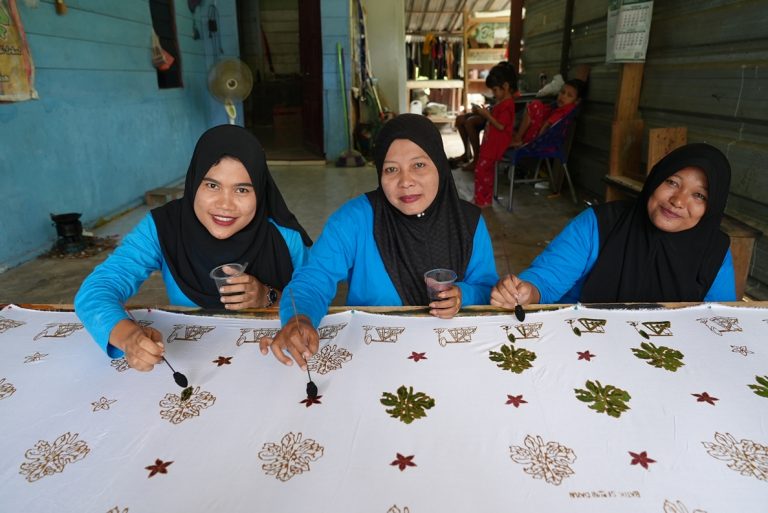
APR deployed a Community Development team to work with local communities, mostly focusing on supporting businesses owned by women and youth, aligned with APR’s commitment to advancing women’s empowerment and reducing poverty.
One of the initiatives is a training course focusing on batik application on viscose fabric, where participants learn to develop motifs and use natural dyes. Basrie says it’s an “opportunity to preserve an important element of Indonesian culture while giving Riau’s women and youth access to new skills and jobs.”
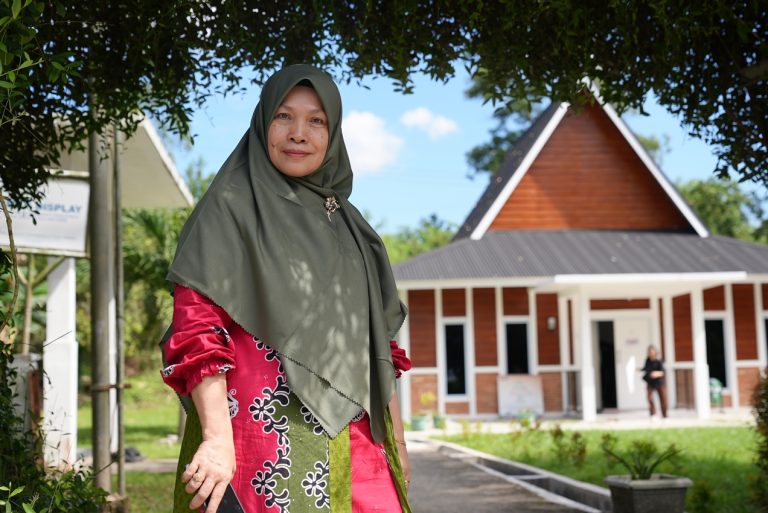
Siti Nurbaya has long been a batik craftswoman. With training from APR, she refined her skills and expanded her client base. Her brand, Rumah Batik Andalan, has evolved into a cooperative that empowers local women in Pangkalan Kerinci to craft batik, with support from APR. “These women now have income. Some have even started their batik businesses,” she says.
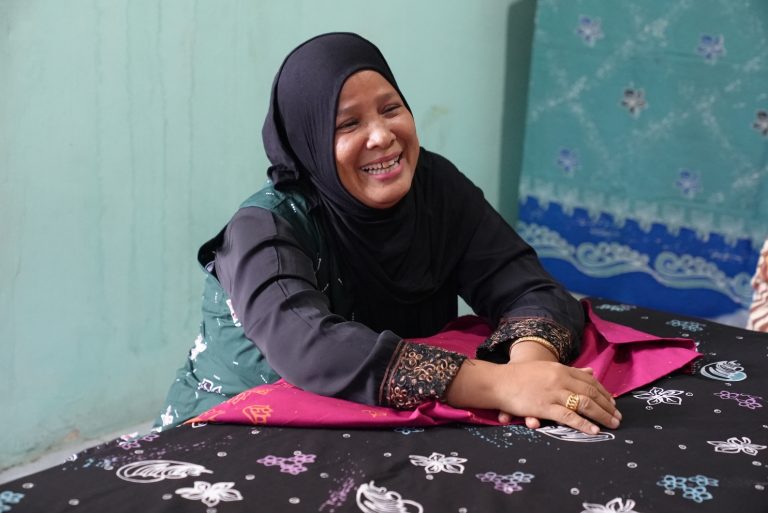
Yusmaini is one of those women; her brand is Batik Yus Pelalawan. “I was in my 40s. I thought it was too late to learn and start new things. But I proved myself wrong. Batik is my fresh start.”
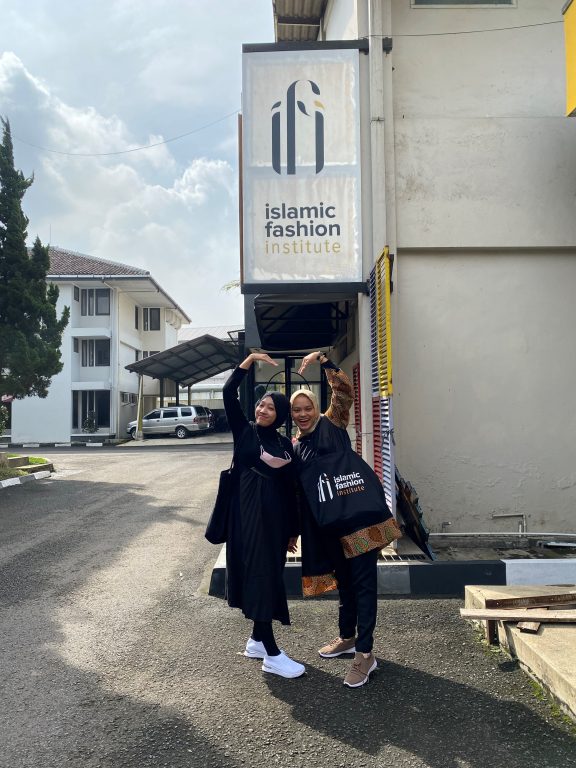
Another APR initiative is scholarship programme for Riau’s aspiring fashion designers. Two young women, Eka Lestari and Lily Masitah, were selected for scholarships at the Islamic Fashion Institute (IFI) Bandung. “This fashion scholarship programme is the first of its kind provided to young aspiring designers from Riau,” says Basrie.
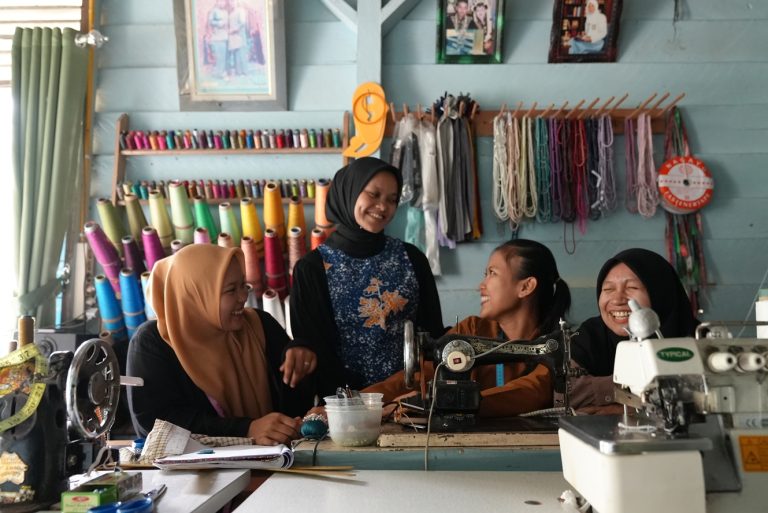
Eka is now the proud owner of Neeka Attire, a custom tailor business in Dayun, Siak, her hometown in Riau. Her customers are in government, educational institutions, and the people around her village. Only 25, she has employed and mentored three young women from Dayun. “My mother taught me that a woman needs skills to be self-sufficient. I believe that.”
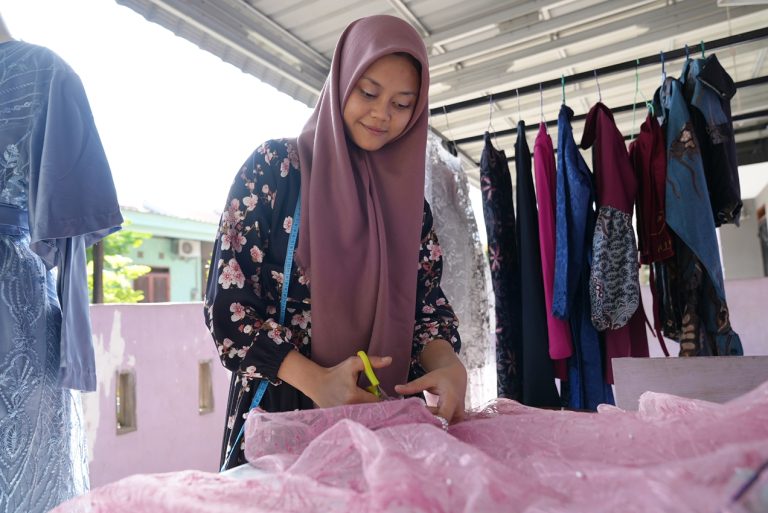
APR also works with vocational schools in Riau to financially support students, like Della Indaludiyana. With her mother as the main provider in a household of seven people, Della used the support to buy supplies for her sewing projects, which led to her first freelance opportunities. “I take orders and even get paid now!”
Aside from educational institutions, APR collaborates with organisations like Asosiasi Pertekstilan Indonesia (API) Riau. Their joint training programme, Kelas Berbagi, helps fashion SMEs and local designers compete in bigger markets. “I hope that some of its members will soon appear on the national stage,” says Basrie.
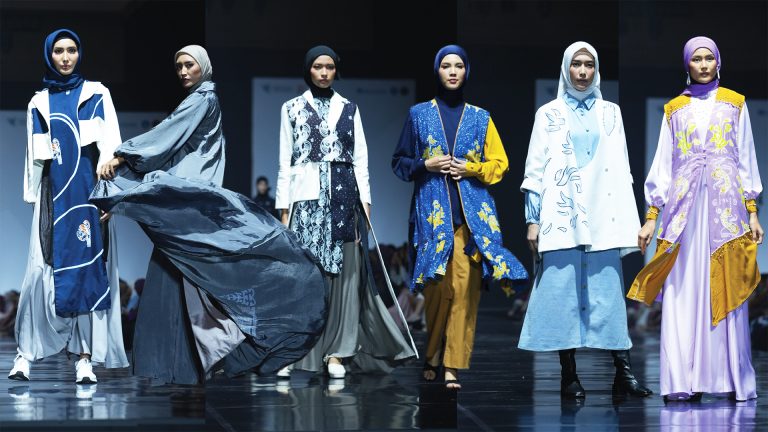
Basrie’s hope has come true. Following the government’s vision to make Indonesia a Muslim fashion hub, APR participated in the Jakarta Muslim Fashion Week (JMFW) 2024 to support the development of sustainable, modest fashion.
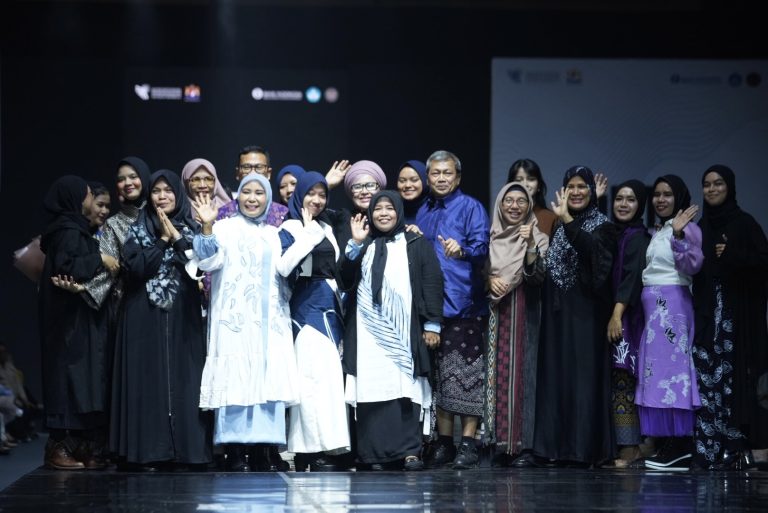
For the event, APR and API partnered with six fashion designers and six batik artisans from Riau, including Siti Nurbaya, Yusmaini, and Eka Lestari, among others. These APR-supported women and their brands presented a modest fashion collection inspired by the natural wonders of Riau, such as the Bono tidal bore and watermelon leaf. “I never imagined I’d experience this at my age,” says Yusmaini. “I realise nothing is ever too late.”
“This collaboration shows that Riau has the potential to become the world’s modest fashion centre,” says Basrie, “with creative designers, distinct craftsmanship, and a large market supported by proximity to neighbouring countries.”
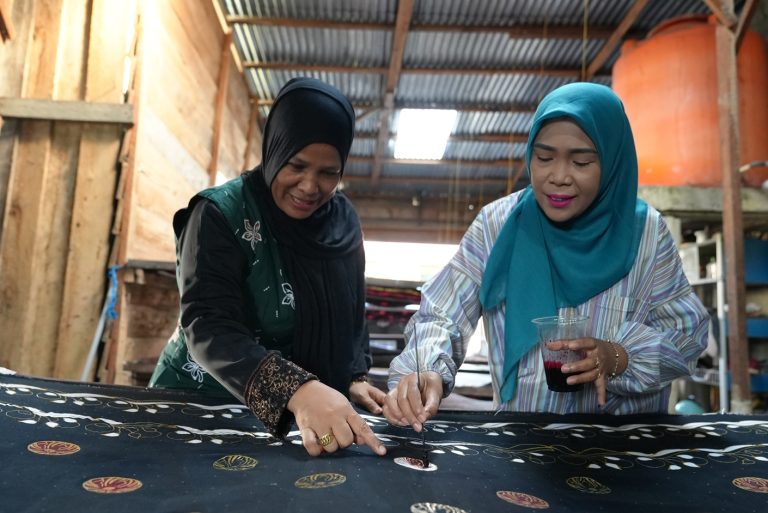
Future demand for Riau craftsmanship and rayon-based materials will create opportunities for youth and women and contribute to a sustainable livelihood in Riau, Indonesia, and beyond.
In line to achieve its APR2030 goal of developing Riau into a textile hub from Indonesia, APR continues its efforts to connect local businesses with textile industry markets, and work at the grassroots with training and scholarship programmes at various levels, skills, and experiences.



